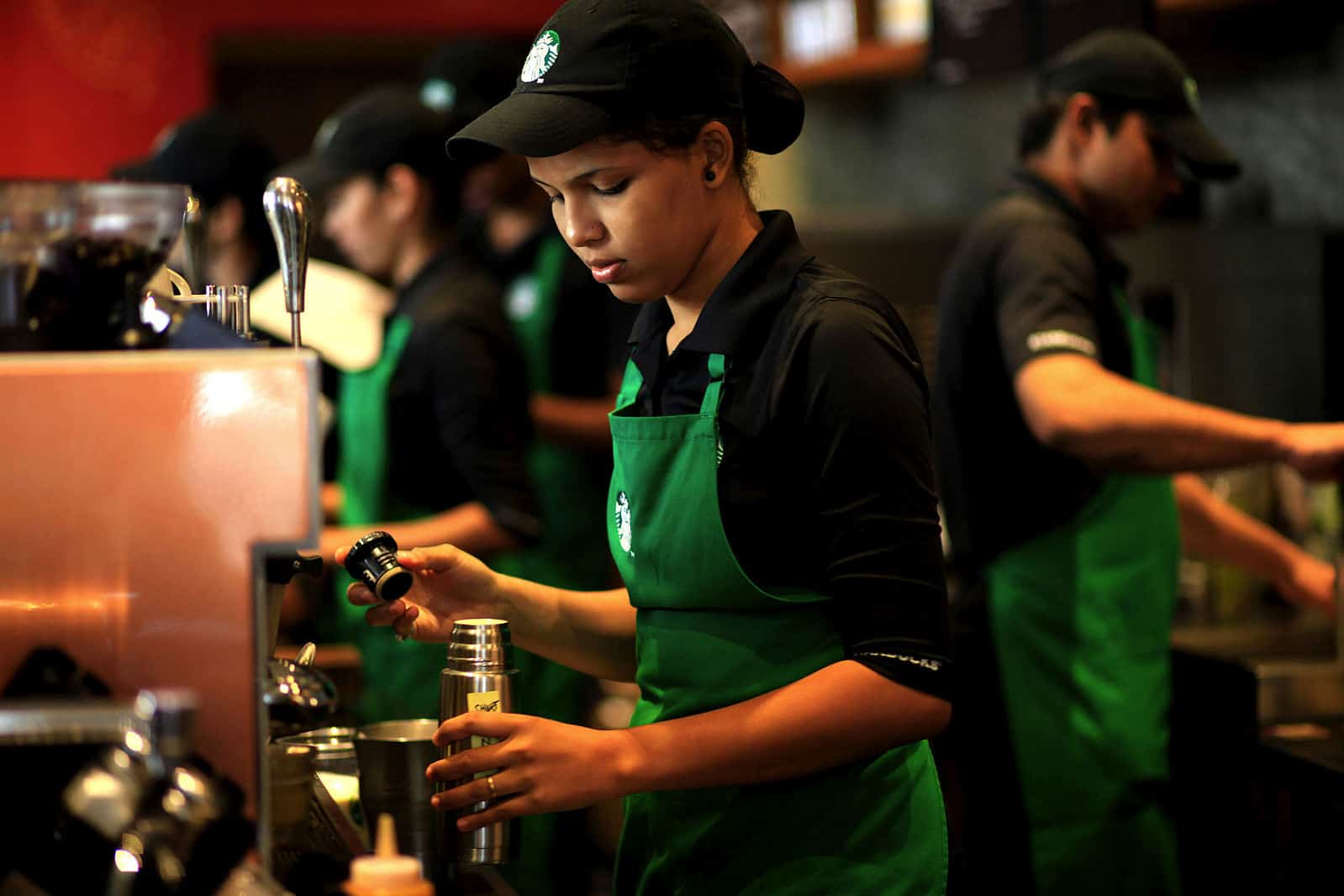Hannah Finnie is a writer in Washington, D.C. interested in the intersections of work and culture. She is a graduate of Harvard Law School.
The first Starbucks in the United States voted to unionize yesterday after a long fight at three Buffalo, New York area Starbucks stores. The Elmwood Avenue location in Buffalo voted in favor of unionizing, one store voted against unionizing, and the third store’s results have not yet been determined. Workers United, the union representing the workers, said it may challenge the results of the store that voted against unionizing because it was unclear if all votes were counted. Outside of the U.S., one Canadian Starbucks voted to unionize in the summer of 2020 and ratified their contract a year later. In addition, Starbucks stores that are located within grocery stores, airports, and other areas that are already unionized may already be a part of a union, but those locations, while franchised by Starbucks, are owned by other companies.
Starbucks was against unionizing, using a common anti-union line that it believed the company and the employees would be better off if they had a direct line of communication. Starbucks sent many of its top employees to Buffalo over the past few months, including its former CEO and Chairman Howard Schultz, who also ran for the Democratic nominee for President in 2020, to try and convince workers not to unionize. Union supporters in Buffalo also complained of mandatory meetings where they say the company tried to intimidate workers into voting against the union. Starbucks also recently sent a letter to its employees reminding them of the company’s benefits, such as free tuition, paid leave, and health care coverage for part-time workers.
The company may have devoted seemingly outsized resources to this one vote, but it likely hoped that stopping a union at one store would discourage other locations from trying to unionize. Three other Buffalo-area Starbucks and one location in Arizona have already filed petitions with the NLRB to unionize.
Over at McDonald’s, the first circuit will be hearing a case brought by SEIU against both McDonald’s and the NLRB for a settlement agreement the parties reached after McDonald’s was accused of retaliating against workers who participated in Fight for $15 demonstrations. McDonald’s and the NLRB settled during Trump’s presidency, and a judge presiding over the case believed that McDonald’s wrongly waited out the case until a Republican took office, suspecting that would lead to a more favorable outcome for the company. Indeed, the settlement reached only amounted to around $170,000 in damages and declared that McDonald’s wasn’t jointly liable with its franchises for any retaliation against workers. Oral argument begins today.
Finally, student-researchers at the University of California system won recognition of their union by the UC system earlier this week. The student-researchers are represented by the UAW. The union will represent around 17,000 student-researchers within the UC system.






Daily News & Commentary
Start your day with our roundup of the latest labor developments. See all
February 27
The Ninth Circuit allows Trump to dismantle certain government unions based on national security concerns; and the DOL set to focus enforcement on firms with “outsized market power.”
February 26
Workplace AI regulations proposed in Michigan; en banc D.C. Circuit hears oral argument in CFPB case; white police officers sue Philadelphia over DEI policy.
February 25
OSHA workplace inspections significantly drop in 2025; the Court denies a petition for certiorari to review a Minnesota law banning mandatory anti-union meetings at work; and the Court declines two petitions to determine whether Air Force service members should receive backpay as a result of religious challenges to the now-revoked COVID-19 vaccine mandate.
February 24
In today’s news and commentary, the NLRB uses the Obama-era Browning-Ferris standard, a fired National Park ranger sues the Department of Interior and the National Park Service, the NLRB closes out Amazon’s labor dispute on Staten Island, and OIRA signals changes to the Biden-era independent contractor rule. The NLRB ruled that Browning-Ferris Industries jointly employed […]
February 23
In today’s news and commentary, the Trump administration proposes a rule limiting employment authorization for asylum seekers and Matt Bruenig introduces a new LLM tool analyzing employer rules under Stericycle. Law360 reports that the Trump administration proposed a rule on Friday that would change the employment authorization process for asylum seekers. Under the proposed rule, […]
February 22
A petition for certiorari in Bivens v. Zep, New York nurses end their historic six-week-strike, and Professor Block argues for just cause protections in New York City.